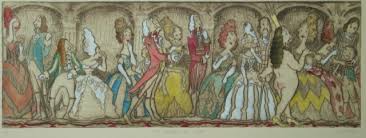
Wedding Garments
See Also

See Also
Optimism In Marriage Plummets To All Time Low
|
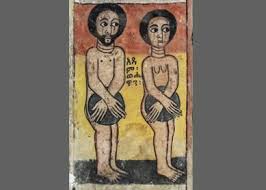
Notes by Ray Stedman
We have already noted the significance of this in part. We saw that this was a sign of God's redemptive activity. With the sacrifice of another's life, he clothed Adam and Eve. In Paul's beautifully expressive phrase in Ephesians, it is a picture of how we are "accepted in the Beloved One," (Ephesians 1:6). We are clothed with the righteousness of Christ. We are given his standing before the Father. All this is beautifully pictured by this account.
But notice why the clothing is required. Clothing is not required for God's benefit. It does not make any difference to God that Adam and Eve are naked. In fact, as Hebrews tells us, we are all always naked before God -- everything is naked and open in his sight. It is not God who requires this clothing, nor is it Adam and Eve, though it may have bothered them to be naked before God in their fallen condition, but it is because of the others who would see them that they are clothed. Clothing is for public appearance. God desires that the mark of his acceptance and acknowledgment of them be manifest to the whole universe. That is why Adam and Eve are clothed, and this is the primary purpose of clothing.
We are concerned about clothing today, because it makes us acceptable in the eyes of others. We feel that we look better, and others think so too. Remember that in the story of the prodigal son, in the New Testament, the first thing the father did when the son returned home was to clothe him with a new robe. It is a public mark of acceptance, a public demonstration that he was back in full favor with his father. Also, in the story of the healing of the demoniac of Gadera, we are told that the Lord cast many demons out of this man, a legion of devils. When the disciples returned to the Lord they found the former demoniac sitting at the feet of Jesus, "clothed, and in his right mind," (Mark 5:15, Luke 8:35). That clothing is a significant expression of his return to normalcy.
The importance of clothing in its symbolic significance was underscored to me only the other day. I was driving down the street near here just as the youngsters were getting out of high school. I passed by three boys who were walking down the street (at least I thought they were boys). They had long hair down to their shoulders and rather grubby clothes on. Two of them were not so bad, but one of them was in a terrible state. His clothes were filthy, his hair was matted and dirty, and it was, I confess, revolting to me to look at him. But it set me to thinking. What makes these youngsters dress this way? Why are they so fiercely determined about it? Why is it so important to them that they must defy authorities and customs and traditions in order to dress in this fashion? As I thought on it (I had just been working on this passage) I recalled this story of when man was clothed by God. I saw immediately that what lies behind the fierce desire of young people to dress in these weird fashions is that clothing reflects the inner condition of the heart. We want our clothing to be expressive of what we are. Hippy dress is therefore an attempt, in some sense, to be honest.
When I thought of it that way I could see that perhaps we are a bit superficial in our attempts to correct these conditions by outward legislation -- although I think there is a place for legislation of these matters. But if clothing does reflect an inner condition then it does not help much to force an outward change. Clothing is very significant. The proof of that is that, whenever any of these young people (as I have seen happen several times now) become converted, and their inner rebellion ceases, the first sign of it is that their clothing changes. Often they get a haircut as the first thing. Their whole outward look changes because the inward attitude has changed.
Now notice that God clothed Adam and Eve. He killed the animals, he made the skins, and he clothed them. They did not even clothe themselves, but he dressed them. It is important that we let God do this to us.
Not long ago a young man came to me, burdened by a moral failure in his life. He was heavy with guilt and he talked it all out with me. Together we went through the Scriptures. He said to me, "Yes, I know these things. I know that God has forgiven me, but I can't forgive myself. I feel unclean, and I can't look at myself as being anything but unclean." Then I retold him the story of Peter on the housetop in Joppa (Acts 10:9-30), when he was waiting for a delegation, unknown to him, to come from Cornelius. God prepared him for that encounter by letting down a sheet from heaven, filled with unclean and clean animals, and said to him, "Rise, Peter, kill and eat." Remember that Peter protested and said, "No, Lord, I have never touched anything unclean in my life." But God immediately rebuked him, "Peter, don't you call unclean what I have called clean." I said to this young man, "Isn't this what God is saying to you? The scripture says, 'If we confess our sins he is faithful and just to forgive us our sins and to cleanse us from all unrighteousness.' Now don't you dare to call unclean what God has cleansed. That's an insult to God's grace." He was tremendously helped by that and immediately saw the point.
Thus, following the act of faith on Adam's part, there is the cleansing and public mark of acceptance by God, so that it is clearly demonstrated to every being in the universe that Adam and Eve are now received of God, and owned again of him.---Exit from Eden by Ray Stedman
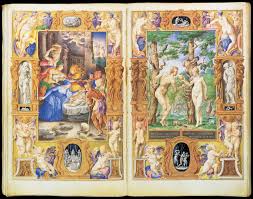 Now the serpent was more crafty than any other wild animal that the Lord God had made. He said to the woman, ‘Did God say, “You shall not eat from any tree in the garden”?’ The woman said to the serpent, ‘We may eat of the fruit of the trees in the garden; but God said, “You shall not eat of the fruit of the tree that is in the middle of the garden, nor shall you touch it, or you shall die.” ’ But the serpent said to the woman, ‘You will not die; for God knows that when you eat of it your eyes will be opened, and you will be like God, knowing good and evil.’ So when the woman saw that the tree was good for food, and that it was a delight to the eyes, and that the tree was to be desired to make one wise, she took of its fruit and ate; and she also gave some to her husband, who was with her, and he ate. Then the eyes of both were opened, and they knew that they were naked; and they sewed fig leaves together and made loincloths for themselves. They heard the sound of the Lord God walking in the garden at the time of the evening breeze, and the man and his wife hid themselves from the presence of the Lord God among the trees of the garden. But the Lord God called to the man, and said to him, ‘Where are you?’ He said, ‘I heard the sound of you in the garden, and I was afraid, because I was naked; and I hid myself.’ He said, ‘Who told you that you were naked? Have you eaten from the tree of which I commanded you not to eat?’ The man said, ‘The woman whom you gave to be with me, she gave me fruit from the tree, and I ate.’ Then the Lord God said to the woman, ‘What is this that you have done?’ The woman said, ‘The serpent tricked me, and I ate.’
The man named his wife Eve, because she was the mother of all who live. And the Lord God made garments of skins for the man and for his wife, and clothed them. Then the Lord God said, ‘See, the man has become like one of us, knowing good and evil; and now, he might reach out his hand and take also from the tree of life, and eat, and live for ever’— therefore the Lord God sent him forth from the garden of Eden, to till the ground from which he was taken. He drove out the man; and at the east of the garden of Eden he placed the cherubim, and a sword flaming and turning to guard the way to the tree of life. (Genesis 3) |
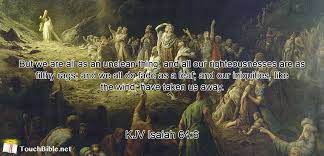


By Ethan Renoe
"A couple years ago at my college, a student group put on an event to educate students about pornography and the sex industry. I paced through it, thinking I had already seen all this before. The exhibit opened with scientific facts about the chemical effects of pornography on the brain, showing how it rewires our mental pathways to crave porn.![]()
The image of God in mankind is male/female. Fifty percent of life is represented by a man’s point of view and fifty percent by the feminine. Jesus is called the Logos (M) of God and also the Sophia (F) of God. He is the Second, or Last, Adam for obvious reasons. As noted, the "Bride of Christ" is not an individual female virgin, but she will be several billion men, women and children of all ages from every nation, and from the past 2000 years of history! (As C.S. Lewis said, "God is so masculine we are all feminine in comparison.") This bride will make herself ready, obviously, before the wedding in New Jerusalem. Her previous status in the world may have been very poor. The requisite preparation of the Bride will probably take place at the Bema Seat.
“...So also is the resurrection of the dead. The body is sown in corruption, it is raised in incorruption. It is sown in dishonor, it is raised in glory. It is sown in weakness, it is raised in power. It is sown a natural body, it is raised a spiritual body. There is a natural body, and there is a spiritual body. And so it is written, “The first man Adam became a living being.” The last Adam became a life-giving spirit.
However, the spiritual is not first, but the natural, and afterward the spiritual. The first man was of the earth, made of dust; the second Man is the Lord from heaven. As was the man of dust, so also are those who are made of dust; and as is the heavenly Man, so also are those who are heavenly. And as we have borne the image of the man of dust, we shall also bear the image of the heavenly Man.” (1 Corinthians 15:42-49)
All said and done, marriage is not a better state than being single. But sexual purity is difficult for many and marriage down here on the planet models the two great marriages discussed in the Bible: Israel as the Wife of God and the true church as as the Bride of Christ.
“Marriage is honorable among all, and the bed undefiled; but fornicators and adulterers God will judge.” (Hebrews 13:4)
“Moreover whom He predestined, these He also called; whom He called, these He also justified; and whom He justified, these He also glorified.
“What then shall we say to these things? If God is for us, who can be against us? He who did not spare His own Son, but delivered Him up for us all, how shall He not with Him also freely give us all things?” (Romans 8:30-32)
Then a voice came from the throne, saying, “Praise our God, all you His servants and those who fear Him, both small and great!”
And I heard, as it were, the voice of a great multitude, as the sound of many waters and as the sound of mighty thunderings, saying, “Alleluia! For the Lord God Omnipotent reigns!
Let us be glad and rejoice and give Him glory, for the marriage of the Lamb has come, and His wife has made herself ready.” And to her it was granted to be arrayed in fine linen, clean and bright, for the fine linen is the righteous acts of the saints.
Then he said to me, “Write: Blessed are those who are called to the marriage supper of the Lamb!’ ” And he said to me, “These are the true sayings of God.” (Revelation 19:5-9)
After His resurrection, Jesus appeared only to His disciples, family and friends or groups of other believers. They saw Him alive and well, perfectly recognizable, in a new body. The last time outsiders saw Jesus when His battered, bloody, broken body was taken down from the cross and carried by the women to the borrowed tomb of Joseph of Arimathea. It was a male they placed in the tomb, and when Jesus appeared to His own on Sunday, His identity as a man was unchanged. Most single men in Israel married young, as soon as they could afford it. It is perfectly reasonable that Jesus should take a bride. She is, however, not one Jewish maiden, but quite a few billion men, women, boys and girls of all ages, from all nations: a gentile bride. The marriage of Jesus will not be a sexual union, yet more intimate than any marriage on earth.
Zipporah and the Pure in Heart
Will My Spouse Be My Best Friend in Heaven?Audio Transcript Welcome back to the Podcast on this Friday to close out the week. As you know, we get a lot of touching emails about marriage, like the one I’m going to read today. It’s from a grieving woman, an anonymous young woman, who lives in the Philippines. Here’s what she writes: “Dear Pastor John, I have been up until recently very happily married. I am now widowed. My husband died just a few weeks ago, and I am devastated. I believe there’s a reason for why I have been left behind. I trust God on that. I believe there’s a reason why he had to go. I can trust God on that. I believe that we can make it without him — myself, our young son, and the church my husband led. I find myself experiencing joy and longing, trust and nervousness, peace and homesickness for heaven. “Aside from missing him and wanting the life we had back, what I can’t seem to wrap my head around are these questions. Why did God even allow me and my husband to share a love like ours on earth if this will mean nothing in heaven? Can’t I at least be guaranteed that my husband will still be my best friend in heaven? Will he even be excited to see me when I get there? In marriage, two become one. Am I just half a person left behind? I know when I get to heaven and enter God’s presence, none of these questions will matter. But they matter now. And I struggle to find wisdom and comfort as to how I must approach my remaining years on earth. Thank you.” That’s a beautiful question, because it’s just so full of faith at the front end and then perplexity at the back end. The loss is still painful, and the questions are still real and urgent. So let me sit down, so to speak, with her for a few minutes and think out loud about three of her questions in the hope that maybe my reflections from the Bible and experience will bring some measure of Christ-honoring comfort to her. Behind her questions is the teaching of Jesus in Mark 12:25: “When [married people] rise from the dead, they neither marry nor are given in marriage, but are like angels in heaven.” In other words, marriage as we know it will not exist in the age to come. That’s behind her questions. That very fact is raising numerous perplexities for this young widow. Echoes in EternitySo, first, she wonders, “Why did God even allow me and my husband to share a love like ours on earth if this will mean nothing in heaven?” The first thing to say in response to this question is that, in this present life, every relationship of love, and faithfulness, and loyalty, and sacrifice, and care will be celebrated for all eternity in tribute to the grace of God and the faithfulness of his obedient child. The “well done, good and faithful servant” that Jesus speaks to his faithful followers at the resurrection is a well done in every fruitful relationship (Matthew 25:23). Well done for that beautiful love. Well done. God’s gracious approval of our imperfect works of faith is not a celebrative bubble that pops at the second coming and is forgotten for eternity. There are eternal good effects to all good done on the earth. Ephesians 6:8 says, “Whatever good anyone does, this he will receive back from the Lord.” Good parenting that lasts five years before a child is snatched away in a car accident; good chastity during engagement before a fiancé dies of a heart attack before the wedding; good faithfulness and intense, mutually self-giving romance in marriage that she describes — these will not be meaningless in heaven. They won’t.
Every good and beautiful fruit of God’s Spirit in your life will reverberate forever to the tribute of his grace and your faith. That’s the first thing to say. The sweetness and intensity of the love between you and your husband will have its echo in the music of heaven. It wasn’t in vain. God Saves the Best WineAnd the second thing to say about this question of why God gave them such sweet love is this: this world, in its most exquisite pleasures, is designed by God to show something of himself. The heavens and everything else are declaring the glory of God, the psalm says (Psalm 19:1). And all these pleasures are meant to awaken thankfulness now and strong anticipation of the age to come when the pleasures of this age will seem as foretastes of something vastly greater. They are. The pleasures of this present age, even the most godly of them, are not the point of the universe, but they are pointers to the point. The Bible pictures the age to come as better than this life, not just because bad things will be taken away, but because good things will be seen to be only foretastes of better things — a better feast of pleasure. Jesus showed this when he said that marriage gets replaced by something better (Mark 12:25). Paul showed it when he described the resurrection as replacing this world with something gloriously better. Listen to these words from 1 Corinthians 15:42:
Now, we can’t conceive fully what a spiritual body is. But in Paul’s mind, it exceeded this present body, with all its pleasures, like the brightness of the glory of a blue sky exceeds a decaying, rotting seed in the ground. “The happiest marriage in the world is but a head start on the joys of heaven.” So, I conclude that the happiest marriage in the world is but a head start on the joys of heaven. It is the appetizer before the feast. It is the warm-up singer who’s really good before the great artist sings. God saves the best wine, just like Jesus at Cana, till the last (John 2:10). And in a happy marriage, even the first wine was really good. Greater Melody of LoveThen our young widow asks, “Can’t I at least be guaranteed that my husband will still be my best friend in heaven? Will he even be excited to see me when I get there?” Now, she knows as well as I do, and she says as much at the end, that Jesus is and will be her best friend. She knows that. “No longer do I call you servants . . . but I have called you friends” (John 15:15).
But I think what she’s feeling is that, while her husband lived, he bestowed on her something that nobody else on earth could give — a unique kind of affection, a love that gave her a very precious sense of belonging that nobody else could give on this earth. And she wonders whether she will have that sweet experience in the age to come, which only he was able to give her. And I think the answer is we just don’t know what the music of love on earth is going to be like when it is transposed into the greater melody of the love of heaven, where there’s no sin whatsoever. This is the great unknown about the immeasurable joys of heaven. What will it be like when she and her husband are beyond the possibility of sin — the sin of self-pity, the sin of disregard? What will it be like when we are not capable of being disappointed, when we’re not capable of being sad at any relationship that God has established? Your husband, I venture to say, will be for you, and you will be for him, all that you need each other to be in order for your joy to be full in the presence of God. Not Less, But MoreAnd finally, she wonders this: “Since in marriage the two become one, am I just half a person left behind?” The answer is no, you are not only half a person left behind. It’s not that simple. Yes, part of you is gone. I’ll admit that. I think you should own that, and that’s sad. Part of you is gone. Only he could draw out of you certain desires, certain kinds of laughter, anger, peace, and countless other inner responses that you can’t even put into words. He had become so embedded in your life that for him to be absent is, yes, for part of you yourself to be absent. That’s true. Things will never be just the same again. And it would dishonor him to think that they should be. But consider this: not all that you became by union with him is lost. You know it’s not. You became a wiser, deeper, better person because of life with him. He did not take all of that with him when he left. You know he didn’t. You know who you are. And what you became through him is not less, but more than you were before he entered your life. God has not made you less, but more. Things will never be the same. That’s true. But God’s call on your life now is to be the person you became through love with your husband, for the glory of God. 
|
So they took Jesus; and carrying the cross by himself, he went out to what is called The Place of the Skull, which in Hebrew is called Golgotha. There they crucified him, and with him two others, one on either side, with Jesus between them. Pilate also had an inscription written and put on the cross. It read, ‘Jesus of Nazareth, the King of the Jews.’ Many of the Jews read this inscription, because the place where Jesus was crucified was near the city; and it was written in Hebrew, in Latin, and in Greek. Then the chief priests of the Jews said to Pilate, ‘Do not write, “The King of the Jews”, but, “This man said, I am King of the Jews.” ’Pilate answered, ‘What I have written I have written.’ When the soldiers had crucified Jesus, they took his clothes and divided them into four parts, one for each soldier. They also took his tunic; now the tunic was seamless, woven in one piece from the top. So they said to one another, ‘Let us not tear it, but cast lots for it to see who will get it.’ This was to fulfil what the scripture says,
‘They divided my clothes among themselves,
and for my clothing they cast lots.’
And that is what the soldiers did.Meanwhile, standing near the cross of Jesus were his mother, and his mother’s sister, Mary the wife of Clopas, and Mary Magdalene. When Jesus saw his mother and the disciple whom he loved standing beside her, he said to his mother, ‘Woman, here is your son.’ Then he said to the disciple, ‘Here is your mother.’ And from that hour the disciple took her into his own home.
After this, when Jesus knew that all was now finished, he said (in order to fulfil the scripture), ‘I am thirsty.’ A jar full of sour wine was standing there. So they put a sponge full of the wine on a branch of hyssop and held it to his mouth. When Jesus had received the wine, he said, ‘It is finished.’ Then he bowed his head and gave up his spirit.
Since it was the day of Preparation, the Jews did not want the bodies left on the cross during the sabbath, especially because that sabbath was a day of great solemnity. So they asked Pilate to have the legs of the crucified men broken and the bodies removed. Then the soldiers came and broke the legs of the first and of the other who had been crucified with him. But when they came to Jesus and saw that he was already dead, they did not break his legs. Instead, one of the soldiers pierced his side with a spear, and at once blood and water came out. (He who saw this has testified so that you also may believe. His testimony is true, and he knows that he tells the truth.) These things occurred so that the scripture might be fulfilled, ‘None of his bones shall be broken.’ And again another passage of scripture says, ‘They will look on the one whom they have pierced.’
After these things, Joseph of Arimathea, who was a disciple of Jesus, though a secret one because of his fear of the Jews, asked Pilate to let him take away the body of Jesus. Pilate gave him permission; so he came and removed his body. Nicodemus, who had at first come to Jesus by night, also came, bringing a mixture of myrrh and aloes, weighing about a hundred pounds. They took the body of Jesus and wrapped it with the spices in linen cloths, according to the burial custom of the Jews. Now there was a garden in the place where he was crucified, and in the garden there was a new tomb in which no one had ever been laid. And so, because it was the Jewish day of Preparation, and the tomb was nearby, they laid Jesus there. (John 19:23-42)
Early on the first day of the week, while it was still dark, Mary Magdalene came to the tomb and saw that the stone had been removed from the tomb. So she ran and went to Simon Peter and the other disciple, the one whom Jesus loved, and said to them, ‘They have taken the Lord out of the tomb, and we do not know where they have laid him.’ Then Peter and the other disciple set out and went towards the tomb. The two were running together, but the other disciple outran Peter and reached the tomb first. He bent down to look in and saw the linen wrappings lying there, but he did not go in. Then Simon Peter came, following him, and went into the tomb. He saw the linen wrappings lying there, and the cloth that had been on Jesus’ head, not lying with the linen wrappings but rolled up in a place by itself. Then the other disciple, who reached the tomb first, also went in, and he saw and believed; for as yet they did not understand the scripture, that he must rise from the dead. Then the disciples returned to their homes." (John 20:1-10)
The man Adam had a unified genome evidently but half his genetic endowment was evidently given to Eve when she taken out of Eve. See: The Sperm of God.
 On the third day, Sunday morning, Jesus showed up alive and well, visiting His disciples and some of the faithful women. He was recognizable (when He chose to be), wound marks intact. He was for sure not naked, but had new clothes on--not a tux, not a suit and tie--just the common dress of the day.
On the third day, Sunday morning, Jesus showed up alive and well, visiting His disciples and some of the faithful women. He was recognizable (when He chose to be), wound marks intact. He was for sure not naked, but had new clothes on--not a tux, not a suit and tie--just the common dress of the day.
He was able to cloak his identity as He did later that day on the road to Emmaus. He was able, easily, to walk through solid walls, but eat food and drink wine with His disciples.
C.S. Lewis says that God does not love us because we are lovable, but because He is love. The love that comes from God seeks the best interest of the beloved regardless of the cost to the Giver. We do not easily receive God's gift love the first time we feel it extended towards us, nor do we readily learn how to love others the same way God loves us--which is what He is seeking.
The Bride of Christ is a unique group of believers called to be a special community of believers during the time interval from Pentecost to the Rapture. Believers before the Flood, believers from Noah to Jesus are two other groups (dispensations). Believers who came to Yeshua before Pentecost, believing Jews during the Millennium, etc., are yet other groups. Many millions of martyred followers of Jesus who come to Jesus in the Tribulation period through the 144,000 Jewish evangelists after the Rapture are distinguishable. Today there is a Jewish believing remnant in the world who are not part of the Church, Romans 11:5.
“And to the angel of the church of the Laodiceans write, ‘These things says the Amen, the Faithful and True Witness, the Beginning of the creation of God: “I know your works, that you are neither cold nor hot. I could wish you were cold or hot. “So then, because you are lukewarm, and neither cold nor hot, I will vomit you out of My mouth. “Because you say, ‘I am rich, have become wealthy, and have need of nothing’—and do not know that you are wretched, miserable, poor, blind, and naked— “I counsel you to buy from Me gold refined in the fire, that you may be rich; and white garments, that you may be clothed, that the shame of your nakedness may not be revealed; and anoint your eyes with eye salve, that you may see. “As many as I love, I rebuke and chasten. Therefore be zealous and repent. “Behold, I stand at the door and knock. If anyone hears My voice and opens the door, I will come in to him and dine with him, and he with Me. “To him who overcomes I will grant to sit with Me on My throne, as I also overcame and sat down with My Father on His throne. “He who has an ear, let him hear what the Spirit says to the churches.” ’ ” (Revelation 3:14-22)
 The last church, at the end of the church age, has the most members but is a sham: self righteous, proud, self-satisfied. In reality she is naked, blind, and bankrupt.
The last church, at the end of the church age, has the most members but is a sham: self righteous, proud, self-satisfied. In reality she is naked, blind, and bankrupt.
(Pornographers, by the way, insist on good looks and nice bods, in both their male as well their female models. Virility and fecundity are premium.)
We are hung-up big time on outward appearances. People who are openly immoral sexually are usually naked.
 James the leader of the church in Jerusalem scolded his congregation about playing favorites.
James the leader of the church in Jerusalem scolded his congregation about playing favorites.
My brothers and sisters, do you with your acts of favoritism really believe in our glorious Lord Jesus Christ? For if a person with gold rings and in fine clothes comes into your assembly, and if a poor person in dirty clothes also comes in, and if you take notice of the one wearing the fine clothes and say, ‘Have a seat here, please’, while to the one who is poor you say, ‘Stand there’, or, ‘Sit at my feet’, have you not made distinctions among yourselves, and become judges with evil thoughts? Listen, my beloved brothers and sisters. Has not God chosen the poor in the world to be rich in faith and to be heirs of the kingdom that he has promised to those who love him? But you have dishonored the poor. Is it not the rich who oppress you? Is it not they who drag you into court? Is it not they who blaspheme the excellent name that was invoked over you? You do well if you really fulfil the royal law according to the scripture, ‘You shall love your neighbor as yourself.’ But if you show partiality, you commit sin and are convicted by the law as transgressors. For whoever keeps the whole law but fails in one point has become accountable for all of it. For the one who said, ‘You shall not commit adultery’, also said, ‘You shall not murder.’ Now if you do not commit adultery but if you murder, you have become a transgressor of the law.
So speak and so act as those who are to be judged by the law of liberty. For judgement will be without mercy to anyone who has shown no mercy; mercy triumphs over judgement. (James 2:1-12)

Psalm 8 |


 What John’s vision in Revelation pictures is the wedding feast of the Lamb (Jesus Christ) and His bride (the Church) in its third phase. The implication is that the first two phases have already taken place. The first phase was completed on earth when each individual believer placed his or her faith in Christ as Savior. The dowry paid to the bridegroom’s parent (God the Father) would be the blood of Christ shed on the Bride’s behalf. The Church on earth today, then, is “betrothed” to Christ, and, like the wise virgins in the parable, all believers should be watching and waiting for the appearance of the Bridegroom (the rapture). The second phase symbolizes the rapture of the Church, when Christ comes to claim His bride and take her to the Father’s house. The marriage supper then follows as the third and final step. It is our view that the marriage supper of the Lamb takes place in heaven between the rapture and the second coming (during the tribulation on earth).
What John’s vision in Revelation pictures is the wedding feast of the Lamb (Jesus Christ) and His bride (the Church) in its third phase. The implication is that the first two phases have already taken place. The first phase was completed on earth when each individual believer placed his or her faith in Christ as Savior. The dowry paid to the bridegroom’s parent (God the Father) would be the blood of Christ shed on the Bride’s behalf. The Church on earth today, then, is “betrothed” to Christ, and, like the wise virgins in the parable, all believers should be watching and waiting for the appearance of the Bridegroom (the rapture). The second phase symbolizes the rapture of the Church, when Christ comes to claim His bride and take her to the Father’s house. The marriage supper then follows as the third and final step. It is our view that the marriage supper of the Lamb takes place in heaven between the rapture and the second coming (during the tribulation on earth). Wedding guests must wear the right clothes: True righteousness, not make-believe:
Wedding guests must wear the right clothes: True righteousness, not make-believe: ...Jesus answered and spoke to them again by parables and said:
“The kingdom of heaven is like a certain king who arranged a marriage for his son,
“and sent out his servants to call those who were invited to the wedding; and they were not willing to come.
“Again, he sent out other servants, saying, ‘Tell those who are invited, “See, I have prepared my dinner; my oxen and fatted cattle are killed, and all things are ready. Come to the wedding.” ’
“But they made light of it and went their ways, one to his own farm, another to his business.
“And the rest seized his servants, treated them spitefully, and killed them.
...Jesus answered and spoke to them again by parables and said:
“The kingdom of heaven is like a certain king who arranged a marriage for his son,
“and sent out his servants to call those who were invited to the wedding; and they were not willing to come.
“Again, he sent out other servants, saying, ‘Tell those who are invited, “See, I have prepared my dinner; my oxen and fatted cattle are killed, and all things are ready. Come to the wedding.” ’
“But they made light of it and went their ways, one to his own farm, another to his business.
“And the rest seized his servants, treated them spitefully, and killed them.
“But when the king heard about it, he was furious. And he sent out his armies, destroyed those murderers, and burned up their city.
‘Therefore go into the highways, and as many as you find, invite to the wedding.’
“So those servants went out into the highways and gathered together all whom they found, both bad and good.
And the wedding hall was filled with guests.
“But when the king came in to see the guests, he saw a man there who did not have on a wedding garment.
“So he said to him, ‘Friend, how did you come in here without a wedding garment?’ And he was speechless.
“Then the king said to the servants, ‘Bind him hand and foot, take him away, and cast him into outer darkness; there will be weeping and gnashing of teeth.’
“For many are called, but few are chosen.”
(Matthew 22)
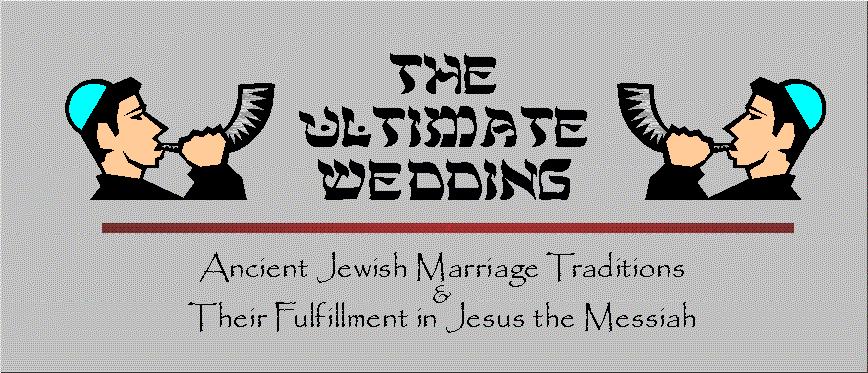

The Revirginized Bride of Jesus Christ
The Wife of Jehovah / The Bride of Christ
Shroud of Turin
The Great Uncovering
The Last One Percent
The Emperor’s New Clothes
The Ultimate Wedding
Made in the Image of God
Yin, Yang, the Tao and Wholeness
Love and Relationships: Song of Solomon
Keys to the Song of Solomon
Psalm 45: The Wedding Psalm
The Story of Two Sisters
Jerusalem: An Adulterous Woman
The Excluded Ones
Genders in Heaven
Index: Sexual Identity and Wholeness in Christ
--------------------------------------------
Music for today
A Glorious Church
I Sing the Mighty Power of God
Jesus, The Light of the World
Pachelbel: Canon in D

Notes by Lambert Dolphin
Newsletter #44 May 2022
Newsletter #45 October 2022
Lambert's Main Library
Email Lambert Dolphin
Archive for Newsletters
Library Annex (since 2018)
------------------------------